Artificial Intelligence in Retail Business: How To Unlock a Rich New World Today
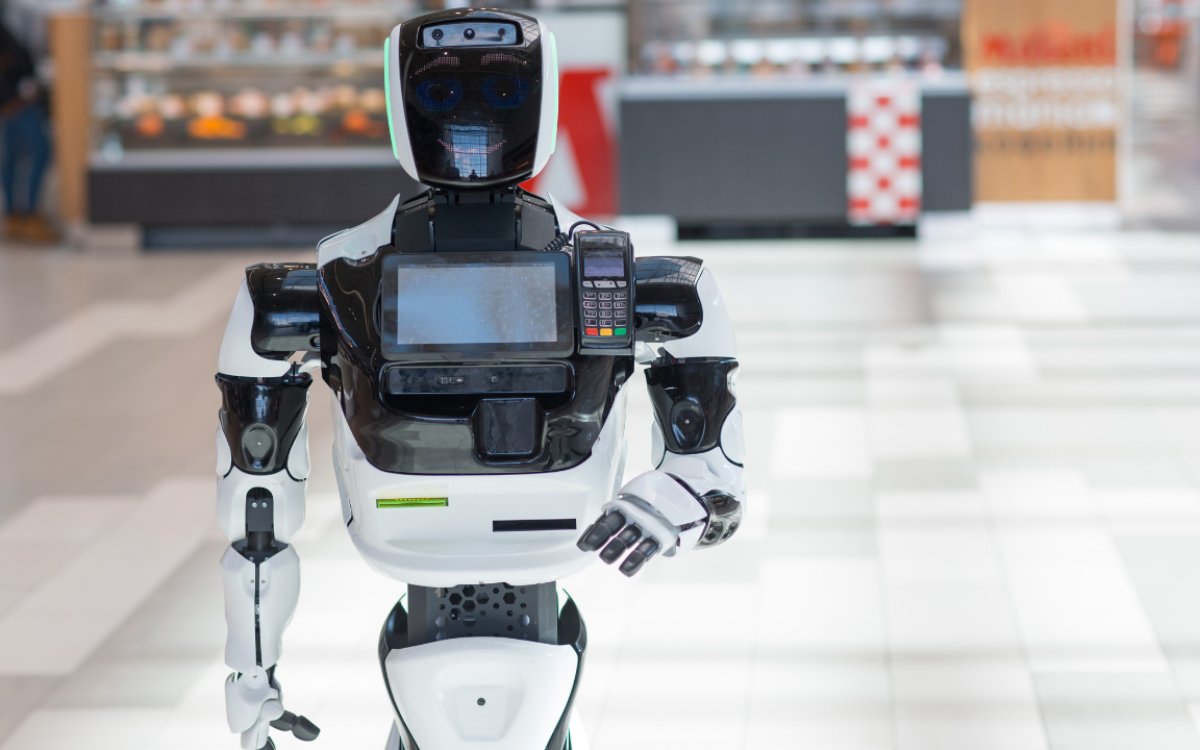
When you buy something through one of the links on our site, we may earn an affiliate commission.
Artificial intelligence in retail business transforms the retail market. It simply redefines the shopping experience.
Envision a retail environment revolutionized by AI. Personalization powered by AI greets you at every turn. Inventory management becomes highly optimized. Customer service is significantly enhanced. And all this is thanks to AI.
This article will take you through AI's revolutionary impact on retail. It affects brick-and-mortar shops as well as digital commerce. I’ll highlight how it's enhancing efficiency and cutting costs. And how it creates uniquely tailored customer experiences.
Join me to discover how AI technology can launch the retail sector into an exciting future.
Contents
Artificial Intelligence in Retail Business: Why You Need it Now
Today's shopping world is tough. Using Artificial Intelligence is really important for businesses to keep up. And to do well.
With AI and Machine Learning, shops can quickly adjust to new trends and customers' wants. This helps them stay popular and successful in a fast-changing business world.
AI in shopping isn't just a fancy idea for the future. It's a real tool that is available now.
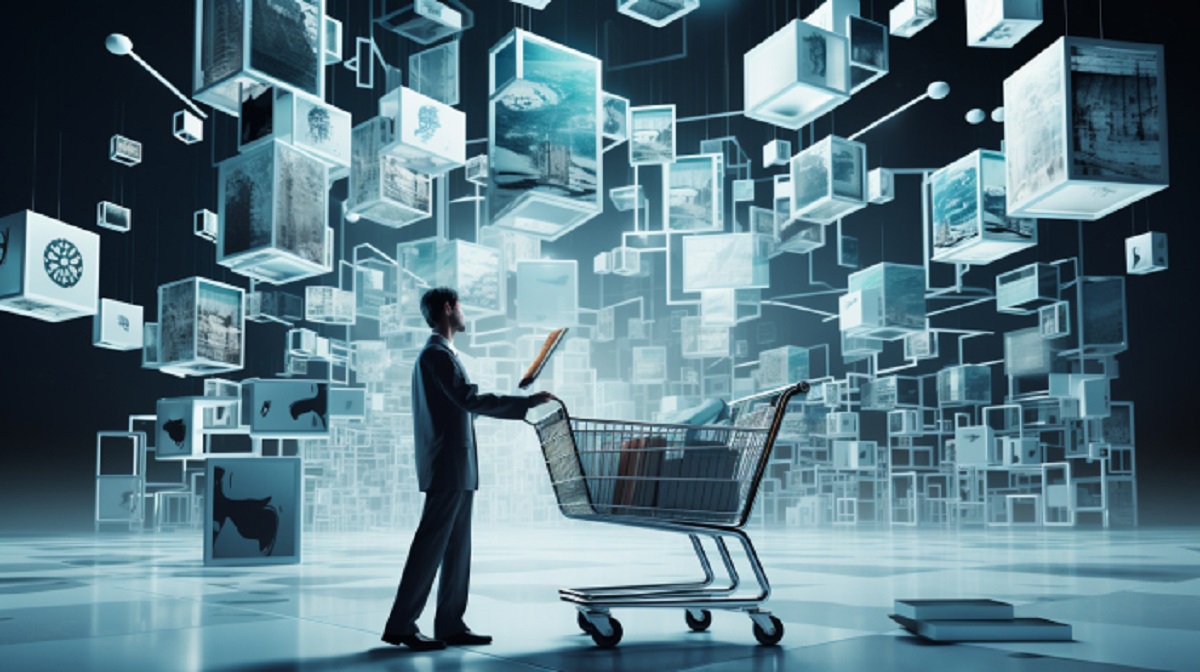
Enhanced Customer Experience
AI can personalize shopping experiences by analyzing customer behavior and preferences. This leads to more targeted marketing, improved product recommendations, and customer satisfaction.
Inventory Management
AI systems can predict stock requirements accurately and help to optimize inventory levels. This reduces the risk of overstocking or stockouts. It ensures that popular items are always available.
Efficient Operations
AI can make running a store easier, like handling supplies and speeding up checkouts. For instance, self-checkout machines can reduce waiting. And AI can help get products to stores more efficiently.
Queue Management
Retailers increasingly adopt queue management and people counting solutions to enhance in-store operations. These systems utilize AI and computer vision technologies to provide accurate real-time data. This information lets stores know exactly how many cash registers they should have open. It helps them work more smoothly and keeps customers happy.
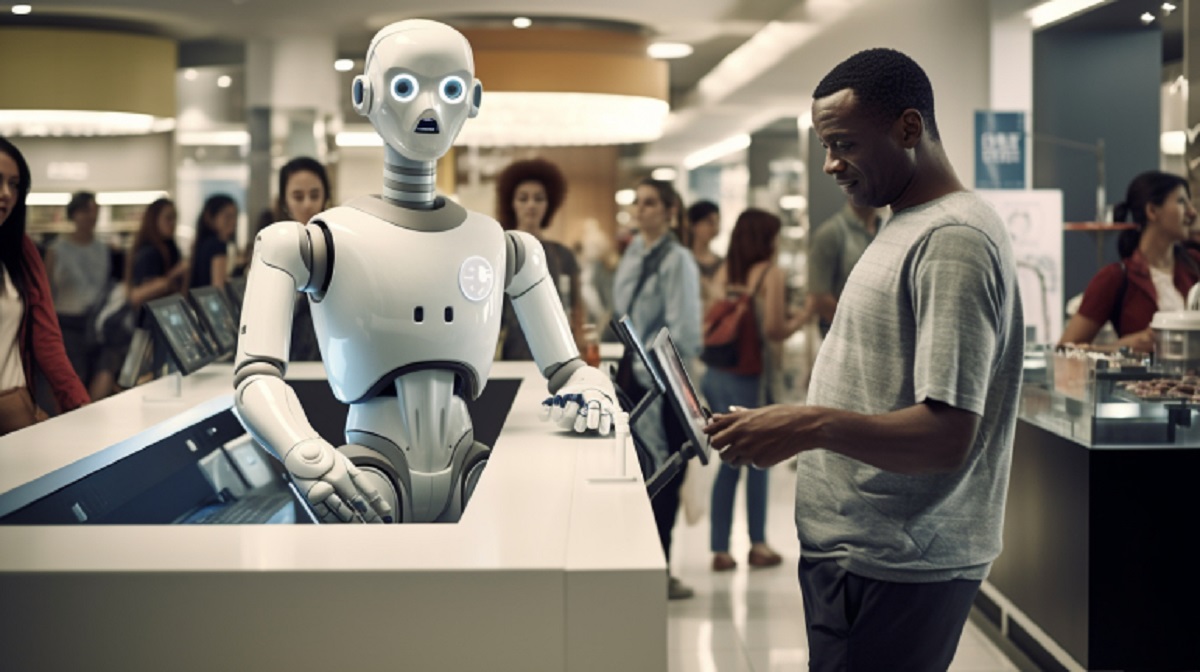
Data-Driven Insights
Stores can use AI to look at a lot of information and learn about what's popular, what customers like, and how well products or sales are doing. This can inform better business decisions.
Cost Reduction
AI can help reduce operational costs. It can automate routine tasks and optimize various processes. For instance, AI in energy management systems can lower utility costs in retail spaces.
Improved Security
AI can make stores safer by using high-tech cameras and tools to catch and stop people from theft and financial fraud.
Competitive Advantage
AI can help stores stay ahead. This is especially relevant now that shoppers expect more. Technology is a big part of shopping.
Enhancing Online and Omnichannel Strategies
In a world that's becoming more digital, AI is key to making online shopping easy. And to link it with brick-and-mortar operations.
Artificial Intelligence in Retail Business: Core Applications
AI is transforming the retail industry.

Some core applications of AI in retail include:
- Cashier-less Stores
- Chatbot-based Solutions
- Price Regulation Strategies
- Virtual Trial Rooms
- Demand Forecasting
- Personalized Product Recommendations
- Automated Inventory Management
- Customer Sentiment Analysis.
Enhancing Customer Experience
Here are some examples of how AI enhances the customer experience in various industries.
AI in the Fast Food Industry: Fast & Convenient Ordering
AI is increasingly integrated into the fast food industry. It is used to enhance the ordering process and customer experience.

Fast food chains use AI to analyze past customer orders and optimize inventory levels. It is also used to make personalized product recommendations. Recommendations are based on weather and time of day.
AI-powered drive-thrus are being developed to interact with customers.
These AI ordering systems are expected to:
- Streamline the self-service capabilities of restaurants
- Increase efficiency
- Improve customer service.
But despite the rise of AI, it is noteworthy that AI-powered drive-thrus are run almost entirely by humans. This raises questions about the extent of AI's involvement in the ordering process.
AI is changing how we order fast food. AI makes it quicker, more tailored to your liking, and easier to do.
Interactive Chat: Engage Customers
Conversational AI enables an interactive customer experience. It also provides live order updates, delivery tracking, payments, returns, and more.
Chatbots are becoming more in demand in the retail industry. They can provide:
- 24/7 customer service
- Advertising for flash sales
- Answers to basic questions
- Customer engagement through social media.
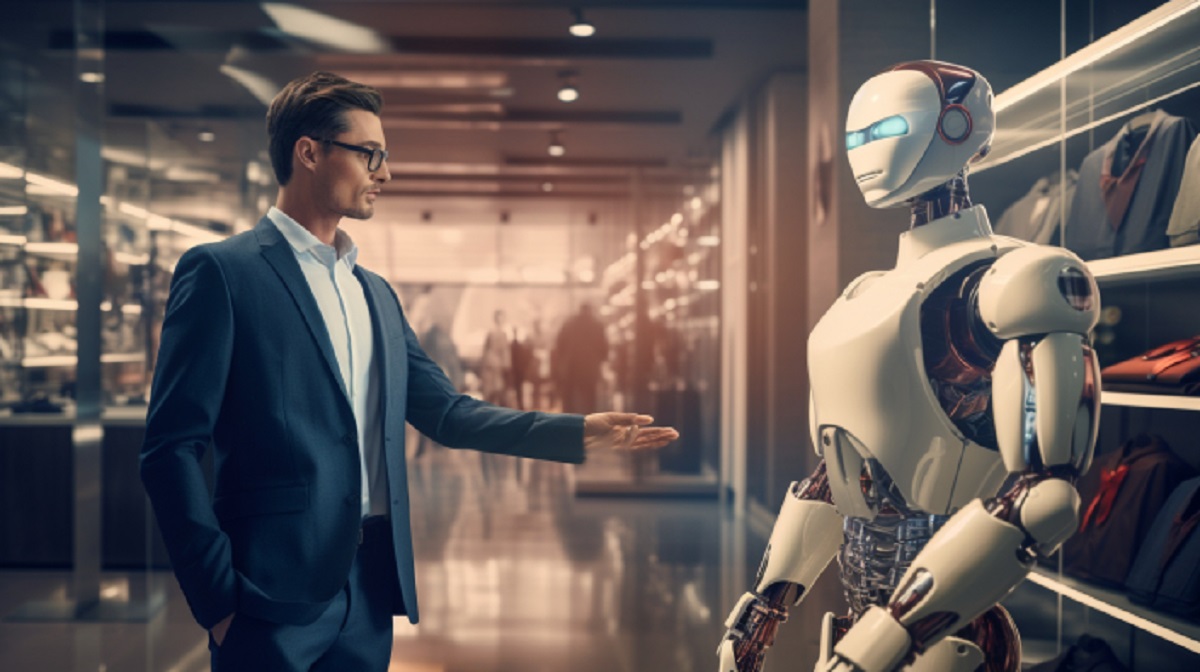
Shops often use a mix of search and AI chatbots. This makes it easier and more efficient for customers to get the information they need from the brand.
Conversational AI use cases in retail include:
- Simplifying product search
- Personalized recommendations
- Customer feedback
- Marketing automation.
Learn more from our article on the best AI chatbot options.
Marketing and Customer Behavior Analysis
AI marketing tools analyze customer data to:
- Identify patterns and preferences
- Predict future actions
- Develop effective marketing strategies.
AI algorithms can process huge chunks of data. This, in turn, means companies can create:
- Targeted marketing campaigns
- Tailored product offerings
- Personalized product recommendations and content.
AI improves customer service by analyzing customers' feelings based on what they say online.
AI applications allow businesses to:
- Make data-driven decisions
- Optimize inventory management
- Improve customer satisfaction and loyalty.
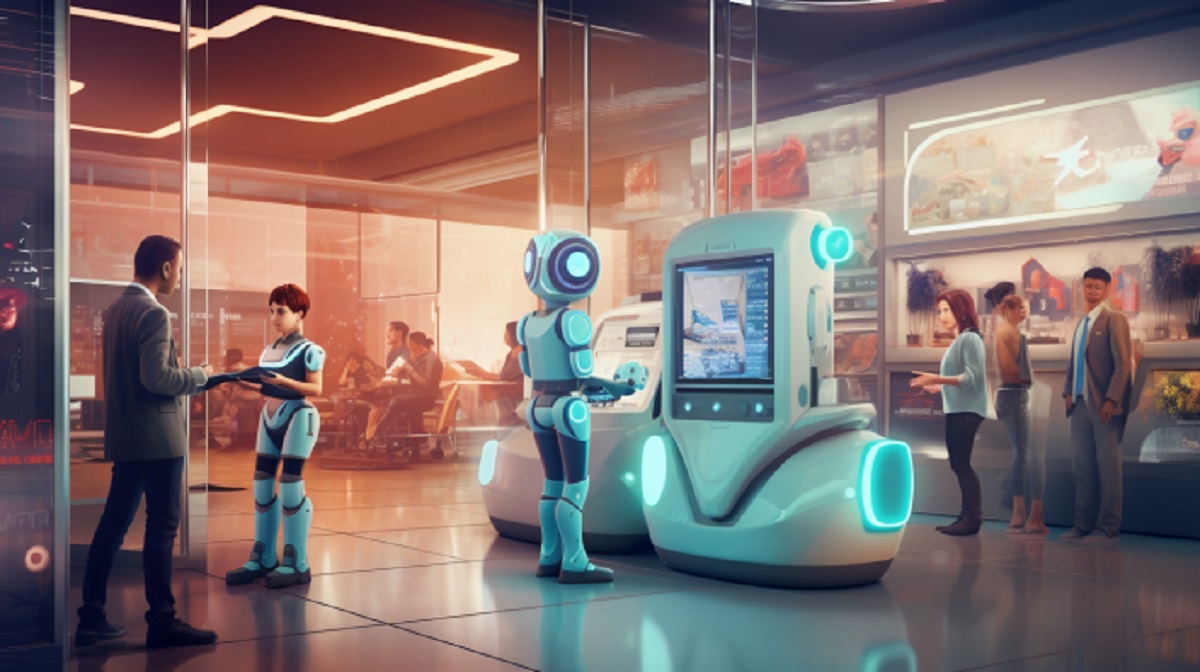
CRM: Customer Relationship Management
AI-powered CRM systems use artificial intelligence to:
- Automate tasks
- Analyze customer data
- Provide personalized customer interactions.
The goal is to let AI handle the analysis and make intelligent recommendations to:
- Salespeople
- Customer service representatives
- Marketers.
The most widely adopted use cases for AI in CRM are automated emails and account intelligence. Conversational AI and lead conversion are also used extensively.
The fusion of AI with CRM is not just enhancing operational efficiency. It is reshaping the very fabric of customer relationships.
Businesses can anticipate customer needs and tailor interactions.
Personalized Recommendations
AI-powered personalized recommendations in retail have become increasingly important. Consumers want specially-made experiences that cater to their needs and preferences. Research has shown that personalized recommendations can increase sales by up to 30%.
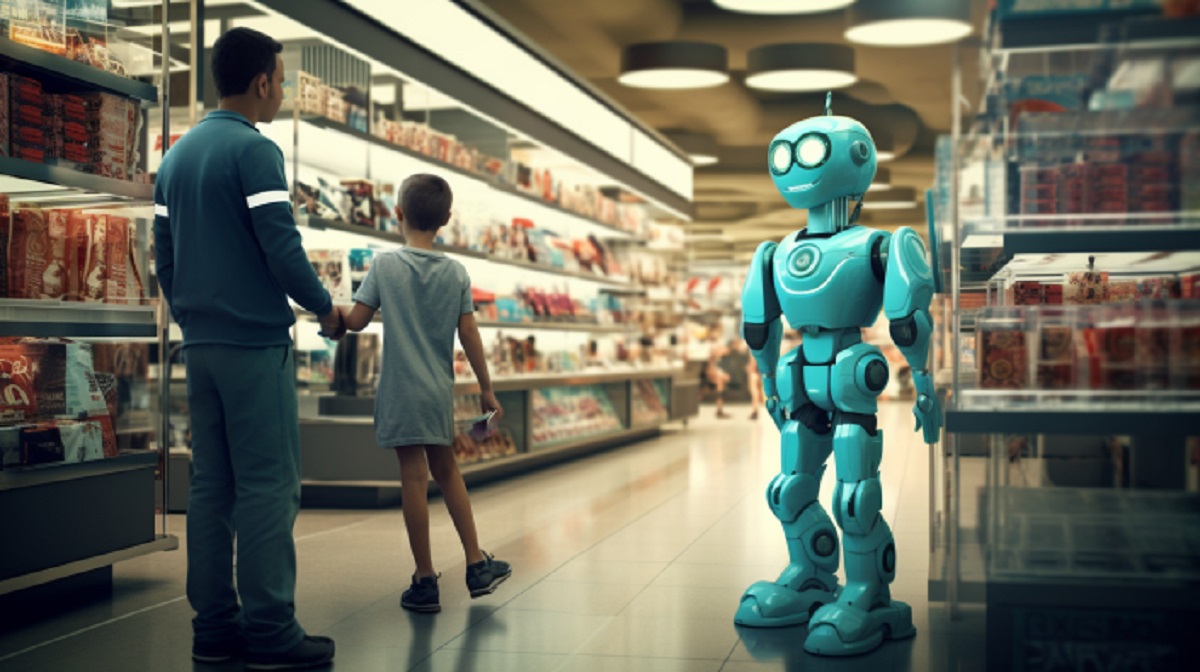
These recommendations can lead to higher sales and improved customer engagement.
Here are some examples.
Stylitics
Stylitics is a leading AI-powered digital merchandising and styling technology provider. Their platform leverages machine learning to analyze customer data and provide personalized recommendations.
Amazon and Whole Foods
These retailers track and suggest products to customers based on their previous buying history.
AI can also identify and recommend products in line with a customer's lifestyle. This is usually triggered by consistent purchases or changes in purchase behavior.
AI personalization in retail can help retailers automate the process. It reduces the time and resources needed to manually tailor experiences for each customer.
AI in the Fashion Industry: Virtual Fitting Rooms
Virtual fitting rooms are becoming increasingly popular in the fashion industry. They are digital versions of in-store dressing rooms. They allow customers to try on clothes virtually and visualize how the items will look on their bodies before purchasing.
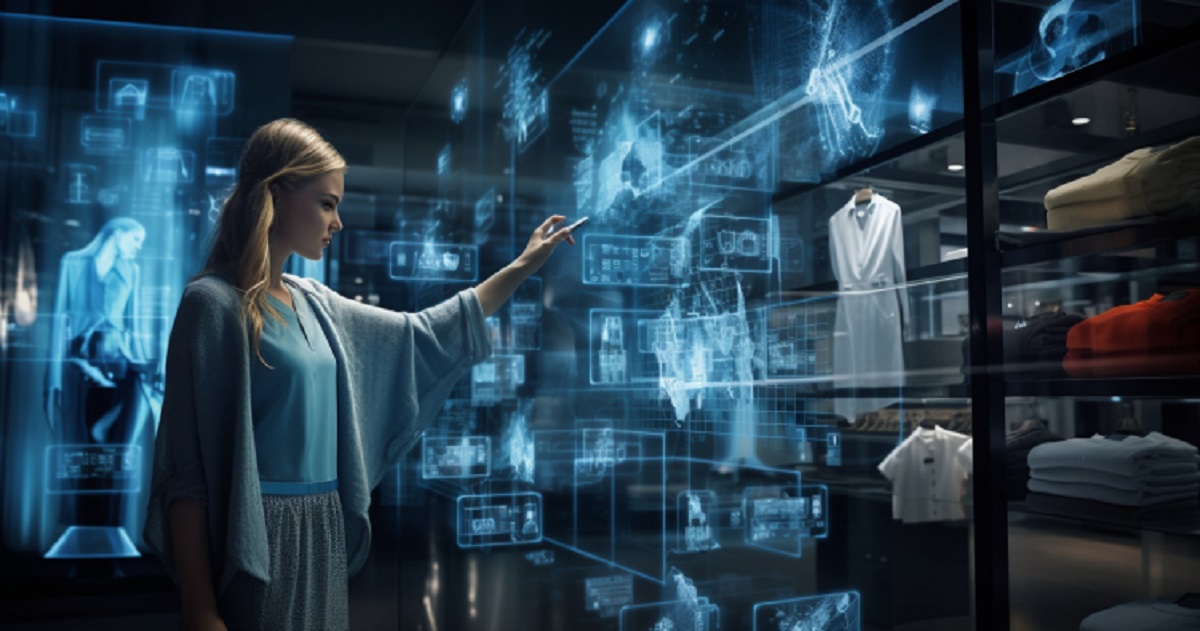
These solutions rely on artificial intelligence, computer vision, and augmented reality. Some virtual fitting technology provides customers with a complete view of a brand's clothing. The clothes are displayed on a digital mannequin with a similar body type.
In contrast, others allow customers to choose from various human models that vary in size and appearance.
Virtual fitting rooms can help brands meet their inclusivity and sustainability goals. At the same time, they can drive sales and improve customer satisfaction.
AI in the Beauty Industry: Finding the Perfect Shade
Artificial intelligence in retail business is revolutionizing the beauty industry. It helps customers find the perfect makeup shade. Several companies have developed AI tools and platforms to assist customers in finding the right shade for their skin tone.
Here are some notable AI solutions:
- Nudemeter. This computer vision tool was created by Lui. It aims to predict the color of the actual scene depicted in an image, not just measure the color from the pixels. This helps people find the perfect makeup shade by analyzing skin tones in real time against a database of nearly 90,000 diverse skin tones. The system identifies the ideal makeup shade while catering to customer preference.

- roboMUA. This platform has built an AI algorithm that considers various skin shades. It then helps people find the right match for beauty products. The AI algorithm analyzes the uploaded photo. Then, it generates the exact skin shade from the image.
Automated Inventory Management
Automated inventory management represents a revolutionary shift. It changes how businesses handle their stock and resources. This approach streamlines the entire retail operation inventory process. It employs technologies like:
- Artificial intelligence
- Machine learning
- IoT sensors.
This allows businesses to respond dynamically to changing demand patterns. And supply chain fluctuations.
The automation provides for:
- Real-time insights for better decision-making
- Optimal stock levels
- Reduced operational costs.
Supply Chain Management
Artificial intelligence (AI) transforms retail supply chain management. It enhances efficiency, reduces costs, and increases overall performance.

AI algorithms can analyze data from the whole supply chain. It uses the information to determine optimal inventory levels and improve demand forecasting. Data comes from:
- Sales
- Production schedules
- Shipping times.
Retail AI engines enhance end-to-end visibility by creating clear directives with measurable outcomes.
Machine learning is essential in the retail sector. It is able to forecast bottlenecks and suggest alternative delivery routes. Read our article about machine learning platforms to learn more.
But AI is not a one-size-fits-all solution and might only sometimes apply to certain supply chains.
Demand Forecasting
AI-powered demand forecasting improves accuracy. It uses massive amounts of unstructured data. Then it incorporates various factors and relationships that affect demand daily.
Additionally, AI-driven demand forecasting can improve planning accuracy. It can quickly adapt to retail market trends and emerging customer preferences.
AI can handle changes in demand on a day-to-day basis. It can break demand into 'real' demand and 'forecasted' demand. AI driven analytics can produce better forecasting. This leads to optimized inventory, effective marketing, and fewer man-hours spent on forecasting.
Optimized Product Location
Optimized product location in the retail business involves the placement of goods. Artificial intelligence (AI) can be used to design retail spaces.
- Product Placement Strategy. AI algorithms can identify the most effective locations for products within a store. This includes deciding which products should be placed at eye level and which should be grouped together. It also addresses how to optimize the layout for easy navigation.
- Dynamic Adaptation. AI systems can continuously learn and adapt. They can adjust product placement strategies based on changing trends and seasonal demands. Or even specific events like sales and promotions.
- Efficiency and Revenue Growth. Effective product placement can lead to increased sales. It also reduces waste from unsold inventory. It leads to a more efficient use of retail space. This ultimately contributes to higher profitability.
Fraud Detection and Prevention
AI in retail businesses is increasingly used for fraud detection and prevention.
AI-powered systems analyze customer behavior, transaction data, and other information. This is used to identify patterns indicative of fraudulent activities in real-time. AI reduces losses and protects customers and businesses.
Some key applications of AI in retail fraud detection include:
- Machine learning algorithms that can detect transactions that deviate from standard patterns.
- AI can quickly and effectively analyze large volumes of data from retailers. The data can come from sales transactions, consumer behavior, and supply chain data. It is then used to find signs of fraud.
Cashierless Technology in the Retail Store
Cashierless technology in retail stores represents a significant shift in the shopping experience. It is driven by technological advances. Here's an overview.

Technology Used
Cashierless stores typically utilize a combination of:
- Computer vision
- Sensor fusion
- Deep learning algorithms.
These technologies track the items shoppers pick up. Then they automatically charge them when they leave the store.
Shopping Experience
Shoppers enter the store using a mobile app. As they shop, the system keeps track of the items they select. There's no need to check out at a cashier physically. Billing is handled automatically through the app.
Benefits for Retailers and Customers
- Efficiency. The process is quicker and more efficient, reducing queues and wait times.
- Labor cost reduction. Retailers can operate with fewer staff, cutting labor costs.
- Data collection. These systems collect valuable data on shopping habits and preferences. This data can then be used for inventory management and personalized marketing.
Challenges and Concerns
- Privacy. The use of surveillance and tracking technologies raises privacy concerns.
- Technical challenges. Ensuring accuracy in tracking multiple customers and items is complex.
- Accessibility. These stores must be accessible to those without smartphones. And people who prefer traditional shopping methods.
Examples and Adoption
Companies like Amazon (with its Amazon Go stores) and other retail giants are leading the way in adopting cashierless technology.
The technology is gradually expanding from convenience stores to larger supermarkets.
Future Prospects
This technology is expected to continue to evolve, becoming more accurate and widespread.
AI could have broader implications for employment in the retail sector. As well as the overall shopping culture.
Cashierless technology in retail stores is an innovative approach to streamlining the shopping experience. It offers efficiency and data-driven insights for retailers. And it poses new challenges in terms of privacy and accessibility.
Cost Reduction Through Artificial Intelligence in Retail Business
As we have seen, businesses can reduce costs and improve efficiency with the help of AI. AI can save time and resources by automating manual tasks and minimizing errors.

AI's potential in the retail sector is vast. Its adoption can lead to significant cost savings and operational improvements.
The Future of AI Tools in the Retail Industry
The future of AI in the retail industry is promising. Significant growth is expected in the coming years.
AI is set to play a transformative role. The adoption of artificial intelligence in retail is projected to surpass $127.09 billion by 2033, with a compound annual growth rate (CAGR) of 28% between 2023 and 2033.
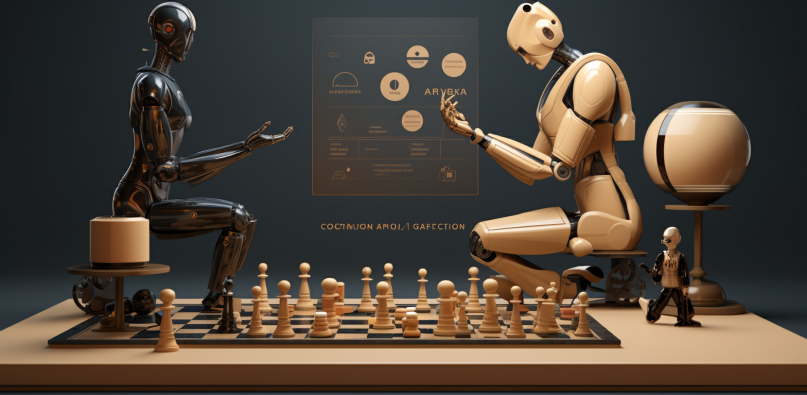
Retailers are expected to rely on AI for research, pricing, and management.
AI technology can help make smarter decisions about:
- Customer demand
- Inventory management
- Product placement
- Pricing and customer service.
There are challenges, such as the need for sufficient return on investment and the employee skills gap. But the continuous evolution of AI is paving the way for new possibilities. It sets the stage for retailers to create value, differentiation, and a competitive edge.
The future of Artificial intelligence in retail business is characterized by customer service trends such as:
- AI-driven omnichannel retailing
- Seamless and frictionless shopping experiences
- AI-driven chatbots and virtual assistants.
AI is expected to revolutionize various aspects of the retail sector. It is a game-changer for the industry.
Artificial Intelligence in Retail Business: Conclusion
In conclusion, artificial intelligence is reshaping retail, offering efficiency and personalized experiences.
AI technologies can optimize operations and predict customer preferences. It can elevate overall business performance.
The future of retail lies in the synergy between human expertise and AI capabilities. Don't miss the opportunity to innovate and thrive in the ever-changing retail business world.
Want to learn step-by-step how I built my Niche Site Empire up to a full-time income?
Yes! I Love to Learn
Learn How I Built My Niche Site Empire to a Full-time Income
- How to Pick the Right Keywords at the START, and avoid the losers
- How to Scale and Outsource 90% of the Work, Allowing Your Empire to GROW Without You
- How to Build a Site That Gets REAL TRAFFIC FROM GOOGLE (every. single. day.)
- Subscribe to the Niche Pursuits Newsletter delivered with value 3X per week
My top recommendations
















